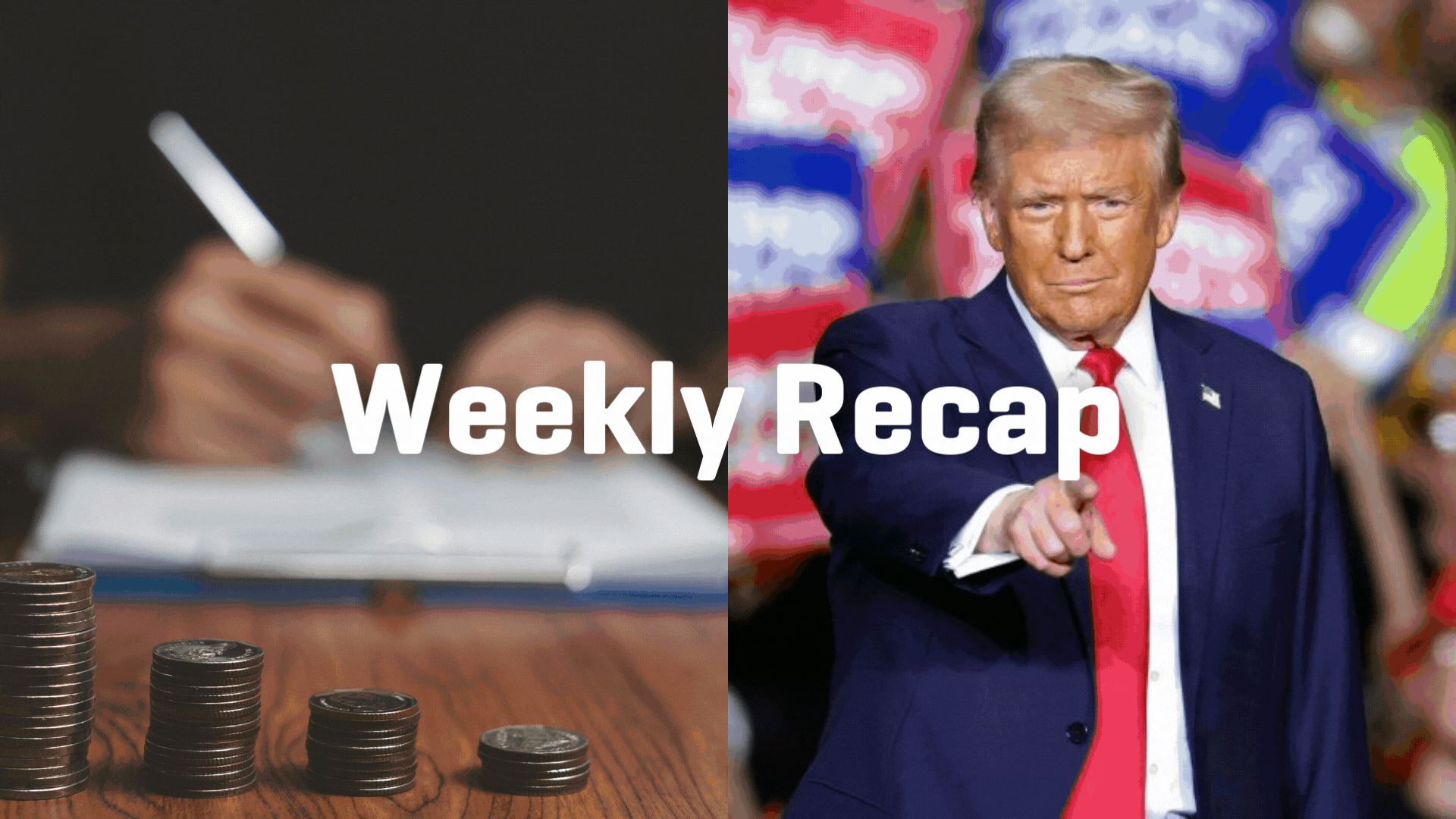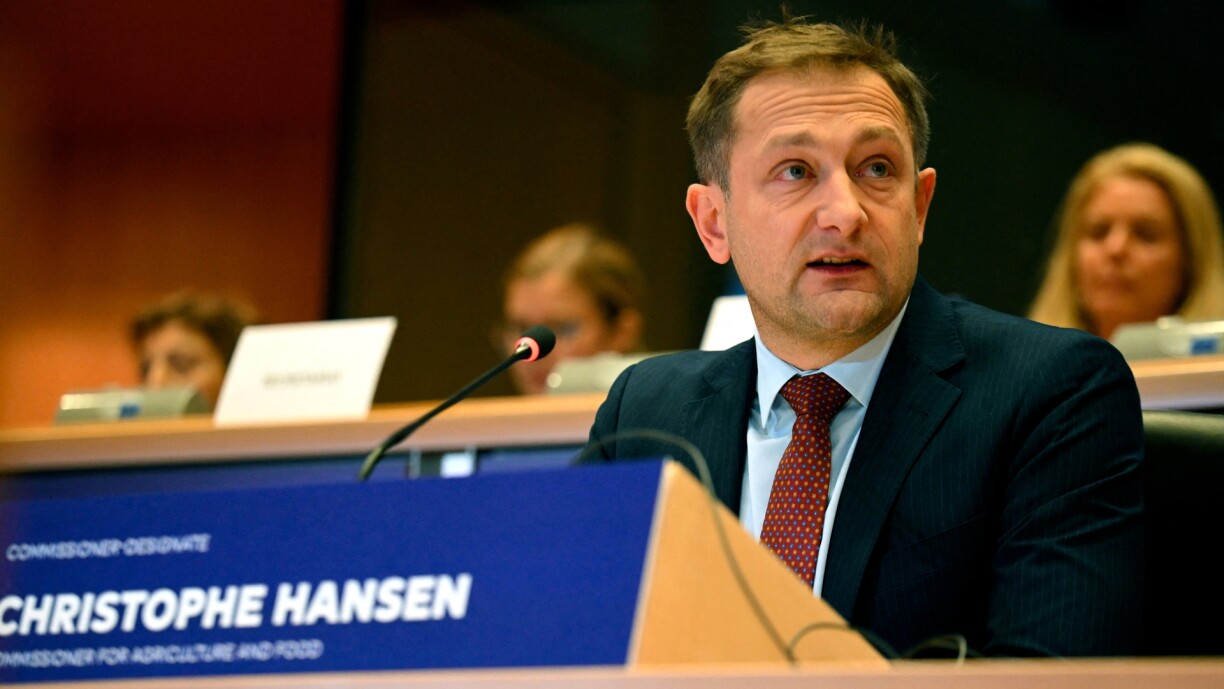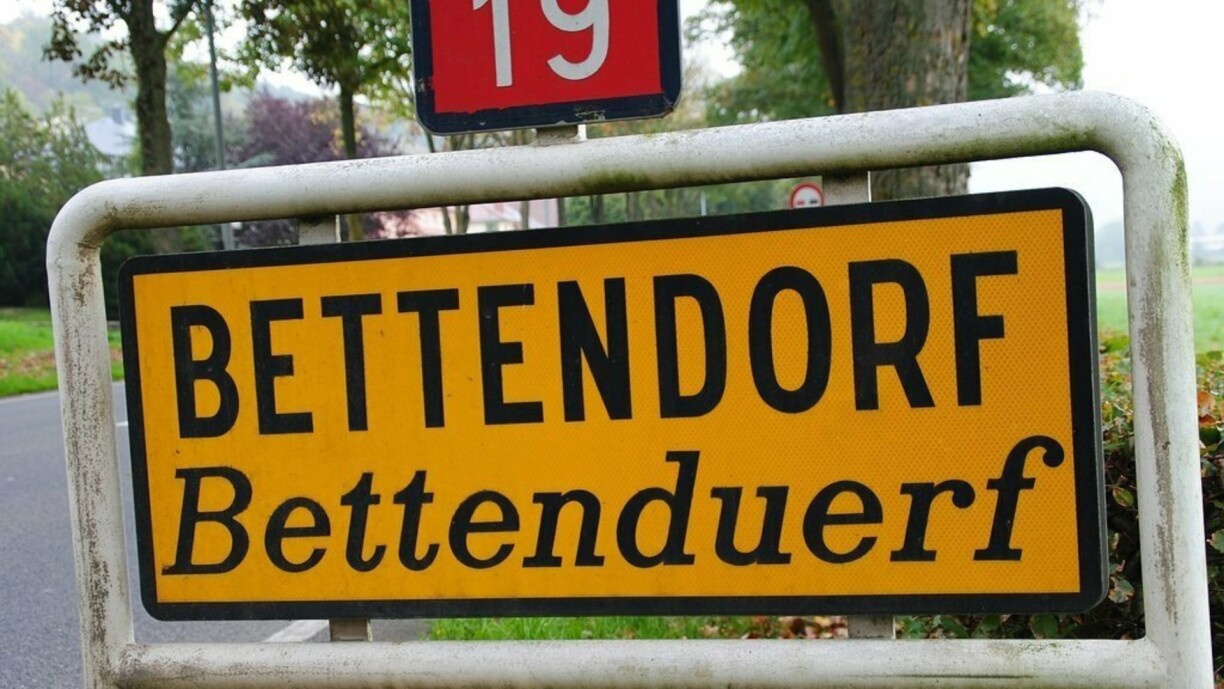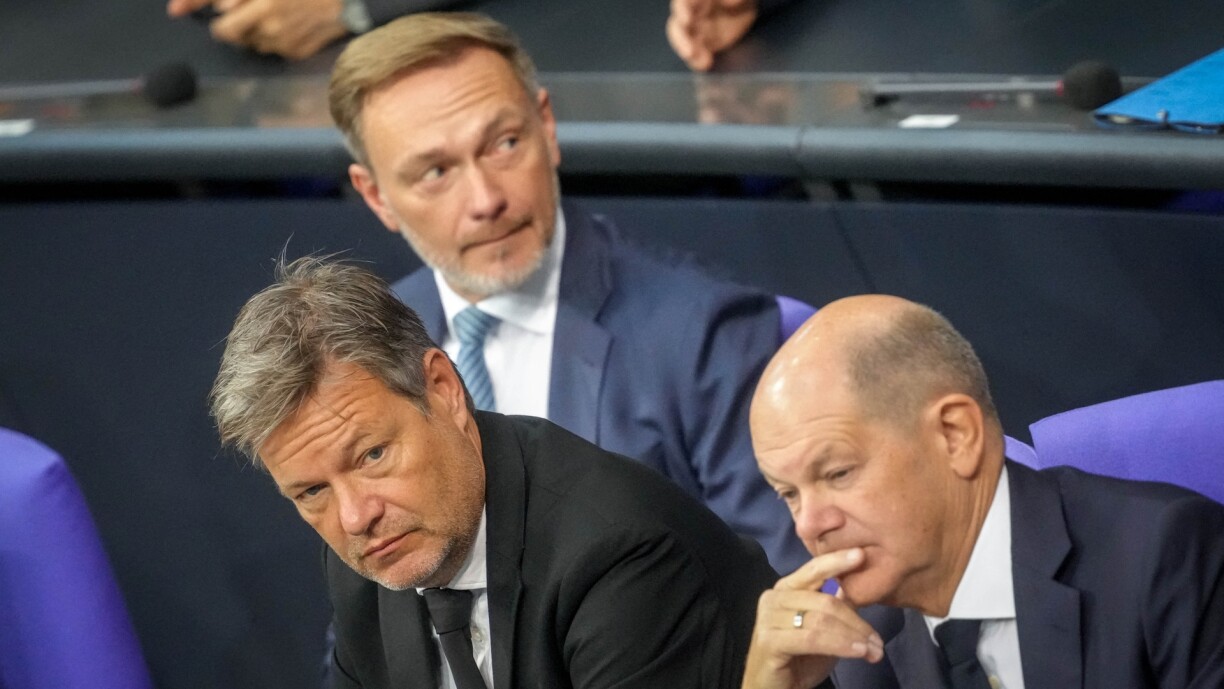
Here are five things you should know at the end of this week:

The new STATAEC director announced that Luxembourg’s next wage index adjustment will not occur until 2025, with inflation expected to remain around 2% unless significant economic changes arise.
Inflation steady – The National Institute of Statistics and Economic Studies (STATEC) recently clarified that no additional wage indexations will be made until 2025. The announcement, made by Tom Haas, the institute’s new director, follows Luxembourg’s steady inflation, projected to remain around 2% for the coming months. This means that the next wage indexation, typically used to adjust salaries in line with inflation to protect purchasing power, will likely occur next year. Haas emphasised that STATEC’s current forecast reflects stable inflation unless unforeseen economic shocks alter the landscape, creating a cautious but optimistic outlook on Luxembourg’s immediate inflation and wage growth.
Global uncertainty – While Luxembourg has maintained steady purchasing power growth, Haas expressed concerns about potential headwinds due to economic slowdowns among key trading partners, notably France and Germany. France’s ongoing cost-cutting measures and Germany’s recession could hinder Luxembourg’s growth prospects, especially given the interconnectedness of their economies. Additionally, Haas pointed to the possibility of trade policy changes in the United States, specifically if President-Elect Trump’s proposed import taxes come into effect, which could introduce further uncertainty.
Two indexations on the horizon? – Haas highlighted the institute’s strategic shift toward advanced methodologies, such as big data and artificial intelligence, to handle an expanding scope of economic, social, environmental, and demographic statistics. Anticipating a slight rise in inflation in 2025, particularly due to the expiration of energy price caps, STATEC is preparing for possible double wage indexations next year. This adjustment depends on how energy prices develop, with the first indexation potentially occurring in the first quarter if prices rise significantly, followed by a second later in the year if inflationary pressures persist.

Christophe Hansen has been unofficially confirmed as the new EU agriculture and food commissioner, securing a two-thirds majority in support.
Hansen, a member of the Christian Social People’s Party (CSV), received broad backing from various political groups, including the EPP, socialists, liberals, greens, and conservatives.
The confirmation will only be official once all 26 EU commissioners have completed the vetting process.
Food and agriculture – Luxembourg’s Christophe Hansen has been unofficially confirmed as the European Union’s next agriculture and food commissioner, following a vote in which he secured the necessary two-thirds majority. This outcome signals significant political support for Hansen’s appointment, reflecting both his reputation within Luxembourg and his alignment with EU agricultural priorities. His selection follows a thorough hearing process, which spanned over three hours, wherein Hansen addressed key concerns and policies he plans to champion within his new role.
Broad support – Hansen’s confirmation was marked by remarkable cross-party support, with members from across the political spectrum, including the European People’s Party (EPP), socialists, liberals, greens, and conservatives, all endorsing him. Such unity in voting reflects a shared trust in Hansen’s capabilities to steer EU agricultural policies and tackle pressing issues like food security, sustainability, and agricultural innovation. This broad backing underscores a rare consensus in the current political climate, suggesting that Hansen’s proposals and leadership style appeal across ideological lines. His appointment could signal a collaborative approach to policy development within the agriculture sector.
Confirmation pending – While Hansen has garnered sufficient votes for the post, his position will only be official after all 26 commissioners have completed the EU vetting process. This procedural step ensures that each member of the new Commission team adheres to the standards required for EU leadership, including checks on experience, integrity, and policy alignment. Only once this vetting phase is concluded can Hansen officially assume his responsibilities, leading to potential policy initiatives in agriculture and food regulation.

Bettendorf’s municipal council has voted 7–4 to halt talks on the Nordstad merger, prompting residents to call for a referendum through a group called Pro Referendum.
The initiative, led by citizens including former mayor Pascale Hansen, aims to gather 430 signatures to request the referendum, though the council isn’t bound to honor its outcome.
Mayor Patrick Mergen, who supported continuing talks, noted challenges in rejoining discussions, as neighbouring municipalities view Bettendorf as having withdrawn from the process.
Back and forth – Bettendorf’s municipal council at the end of October voted 7–4 to end further discussions about merging with neighbouring towns, a decision that stirred concern among parts of the community. This decision followed years of planning and negotiations related to the merger, which was initially anticipated to culminate in a referendum in 2027. Many residents feel the council’s sudden choice to withdraw undermines the commitment to a transparent decision-making process. In response, citizens have formed a group called Pro Referendum, aiming to give residents a formal say in the merger through a referendum.
Limited impact – Pro Referendum was launched by five residents, including former mayor Pascale Hansen, who are concerned with ensuring that citizens have a voice in local governance. The group emphasises that their purpose is not to take a position for or against the Nordstad merger but rather to uphold democratic engagement by involving citizens directly in the decision. With around 17 active members, they are working to collect the 430 signatures needed to request a referendum. However, even if successful, the council is not legally required to abide by the referendum results, which raises questions about the initiative’s potential impact.
Modest expectations – Mayor Patrick Mergen, who was one of the four council members in favour of continuing merger talks, has acknowledged the residents’ right to call for a referendum. However, he highlighted the complexities in pushing dissenting council members to revisit the decision, as most have firmly opposed the merger. Mergen also mentioned that the neighbouring municipalities have shown little interest in resuming discussions with Bettendorf, seeing it as having exited the talks. His remarks indicate that even if a referendum were held, restarting merger negotiations would require not only a shift in Bettendorf’s council but also cooperation from surrounding areas, which might be difficult to secure.

Donald Trump on Wednesday celebrated a presidential victory over Kamala Harris as results put him on the brink of a remarkable political comeback, securing him a second term in the Oval Office.
World leaders quickly congratulated Trump, with many US voters swayed by his promises of economic growth and nationalist policies.
Both Kamala Harris and President Biden promised a peaceful transfer of power, as the Republican Party also gained control of the Senate.
He’s back – Donald Trump, the Republican former president, proclaimed a decisive victory over Kamala Harris in the presidential election. Speaking to an enthusiastic crowd in Florida on Wednesday, he framed the win as a triumph for the American people, vowing to “make America great again”. The early celebration stirred reactions worldwide, as Trump claimed he was on the verge of a historic comeback, particularly as he secured major swing states and seemed close to a popular vote win. His unexpected performance in key states energised his base, who cheered him on with chants of “USA”, marking what many considered an astonishing return to the political stage.
America First – Following the announcement, global leaders rushed to congratulate Trump, with Israel’s Benjamin Netanyahu calling it “history’s greatest comeback”, while Ukraine’s President Zelensky expressed hopes for a peace-driven approach toward Russia. Trump’s ‘America First’ policies that once unsettled allies seemed to attract attention again, with economic pledges resonating among voters who were disillusioned by the current administration. Trump’s support grew notably among latino and black men, a shift from previous elections, as his stance on economic growth and tough rhetoric on immigration gained traction among a diverse voter base, highlighting concerns over the economy and crime.
Peaceful transition – In a solemn speech at Howard University, Kamala Harris acknowledged her defeat, urging her supporters to keep fighting despite the disappointing results. Her campaign had held high hopes for making history with the first woman presidency, but with swing states falling to Trump and the Democrats losing control of the Senate, the Biden administration eventually followed suit by calling for a peaceful transfer of power. Harris promised to uphold this tradition, contrasting with Trump’s refusal to concede in 2020 as Democrats braced for potential policy rollbacks with Republicans now holding sway across both the executive and legislative branches.

German Chancellor Olaf Scholz’ coalition government collapsed, prompting him to announce a confidence vote by 15 January, likely leading to early elections by March.
Opposition leader Friedrich Merz and other political rivals have pressured Scholz to hold the vote sooner amid economic challenges and global instability.
Scholz has appointed Joerg Kukies as finance minister following the dismissal of FDP’s Christian Lindner, leaving the chancellor leading a fragile minority government.
Early election prospect – Chancellor Olaf Scholz’ government has entered a precarious phase after the collapse of his coalition, comprised of the Social Democrats, the Greens, and the Free Democrats (FDP). The fallout followed Scholz’s decision to dismiss Finance Minister Christian Lindner, a move that fractured the coalition and led to the departure of two other FDP ministers. Facing the challenge of governing with a minority, Scholz announced he would seek a confidence vote by 15 January, allowing lawmakers to determine whether early elections should be called for March, significantly ahead of the originally scheduled vote in September.
Failed coalition – The conservative opposition, led by Christian Democratic Union (CDU) head Friedrich Merz, has pushed Scholz to accelerate the confidence vote, ideally holding it next week instead of in January. Merz argued that Scholz’ coalition, already plagued by ideological rifts and policy disagreements, had failed to address Germany’s pressing economic issues and was now unable to provide the strong leadership needed amid rising geopolitical tensions.
Merz in pole position – Following Lindner’s departure, Scholz appointed Joerg Kukies, a close party ally, as the new finance minister to stabilise his depleted cabinet. Scholz’ minority government now depends on CDU support to pass legislation, meaning he must negotiate on a case-by-case basis with a party already signalling its intent to seek leadership. Amid this reshuffle, Scholz delayed his trip to a European summit and canceled his attendance at COP29 to address the domestic crisis. As Germany faces growing economic challenges, many analysts see early elections and a potential new government as the only viable path forward, with the CDU/CSU leading in polls and Friedrich Merz positioning himself as the likely candidate for chancellor.
Business & Tech – French and Dutch authorities raided streaming giant Netflix’ offices in Paris and Amsterdam on Tuesday as part of a tax fraud inquiry, a judicial source told AFP.
Science & Environment – A Chinese rover has found new evidence to support the theory that Mars was once home to a vast ocean, including tracing some ancient coastline where water may once have lapped, a study said Thursday.
Entertainment – The PlayStation 5 Pro hit shops on Thursday with a price tag that raised eyebrows among gamers, but growing sticker shocks in the tech industry have yet to deter consumers.
Healthcare –65 pharmacies across Luxembourg are set to participate in the 2024 campaign offering individuals the chance to assess their diabetes risk directly at a pharmacy for free.
Case closed –The three human skulls found stowed in plastic bags at an abandoned house in Bertrange on 16 October are at least 50 years old, the National Health Laboratory (LNS) confirmed this week.
Education – Amid reports of strained relations and harassment allegations at Lycée Josy Barthel in Mamer, the Ministry of Education has introduced a complaints committee to address the situation.

Your Weekly Recap is published every Friday at noon. Read earlier versions.